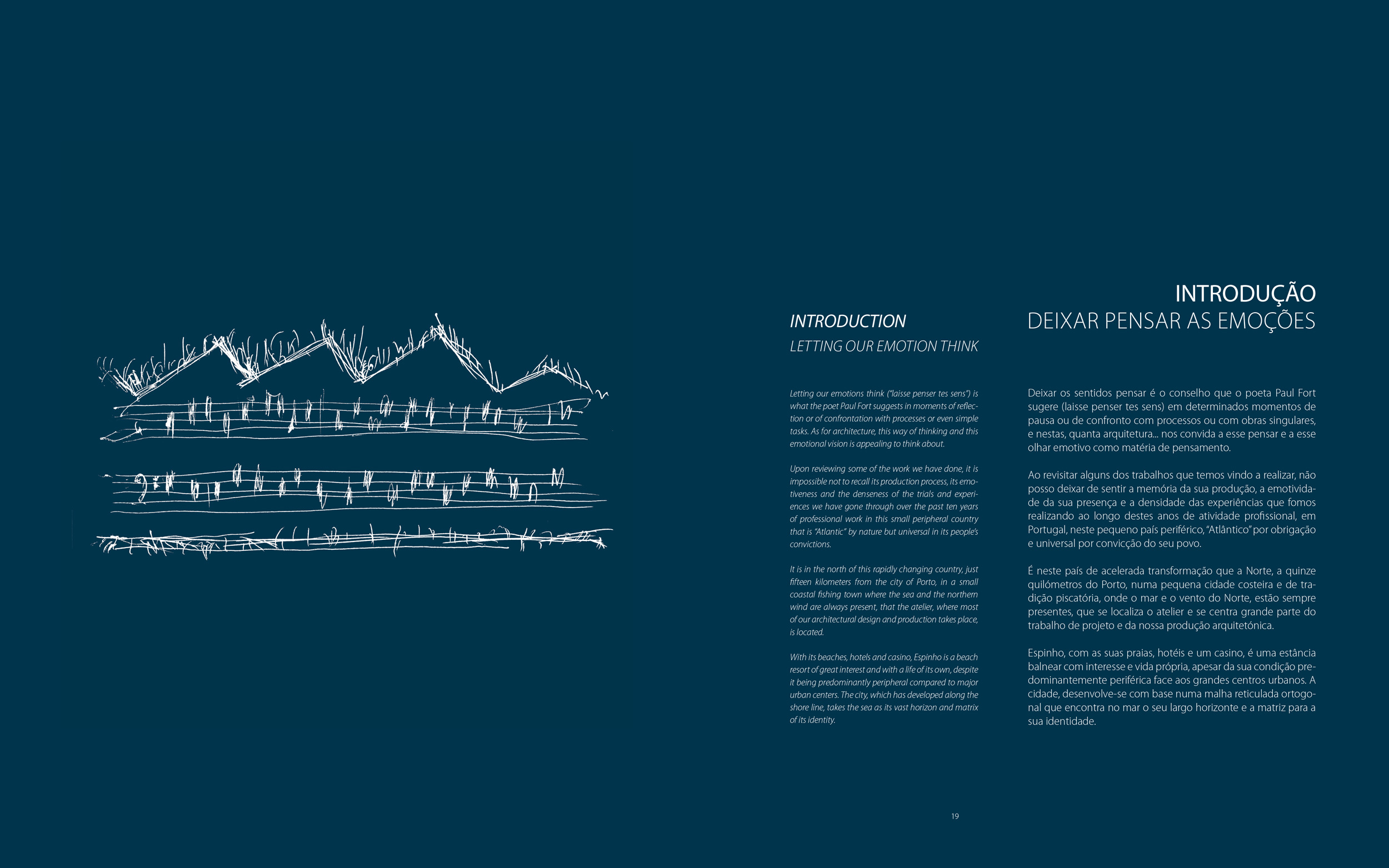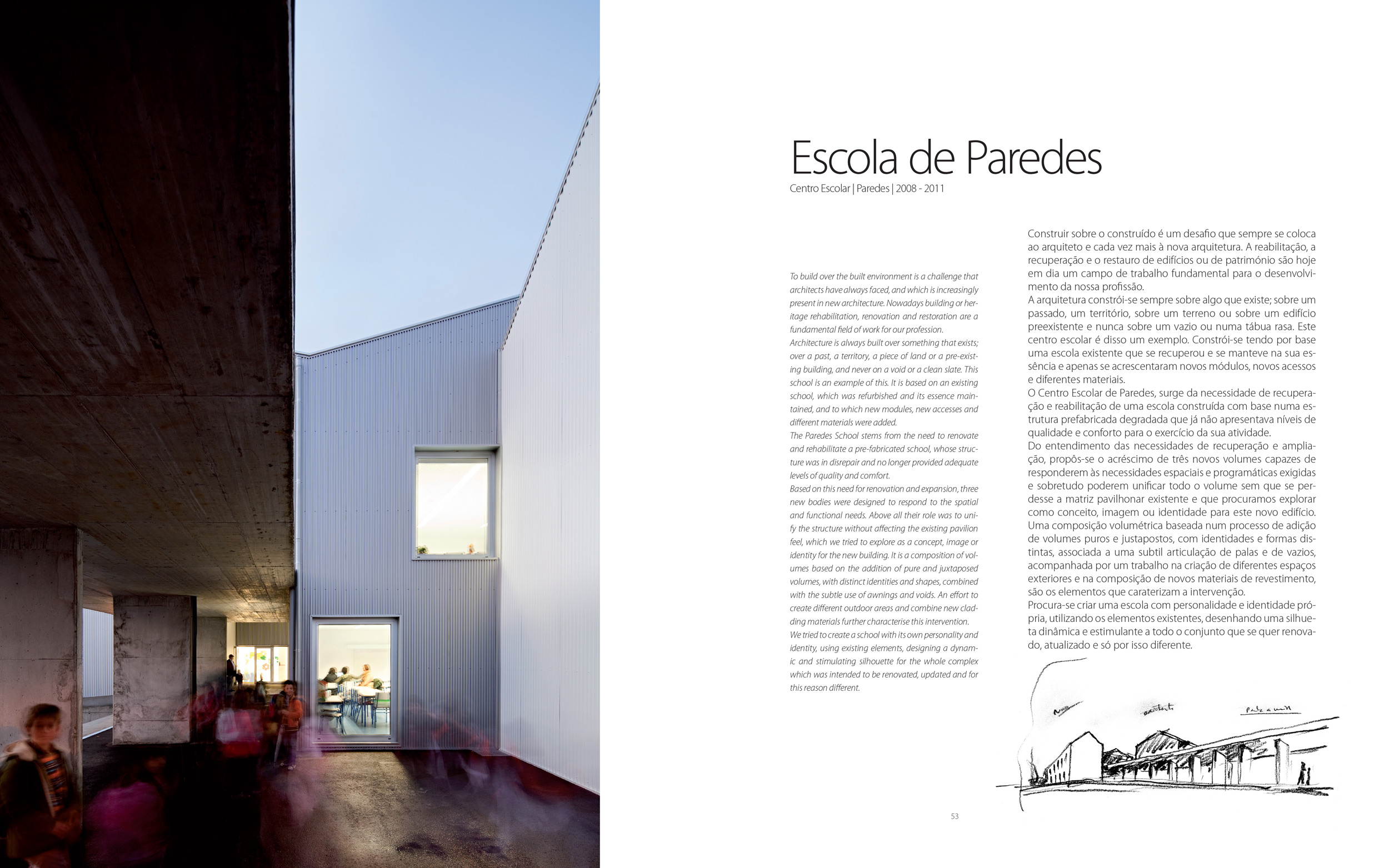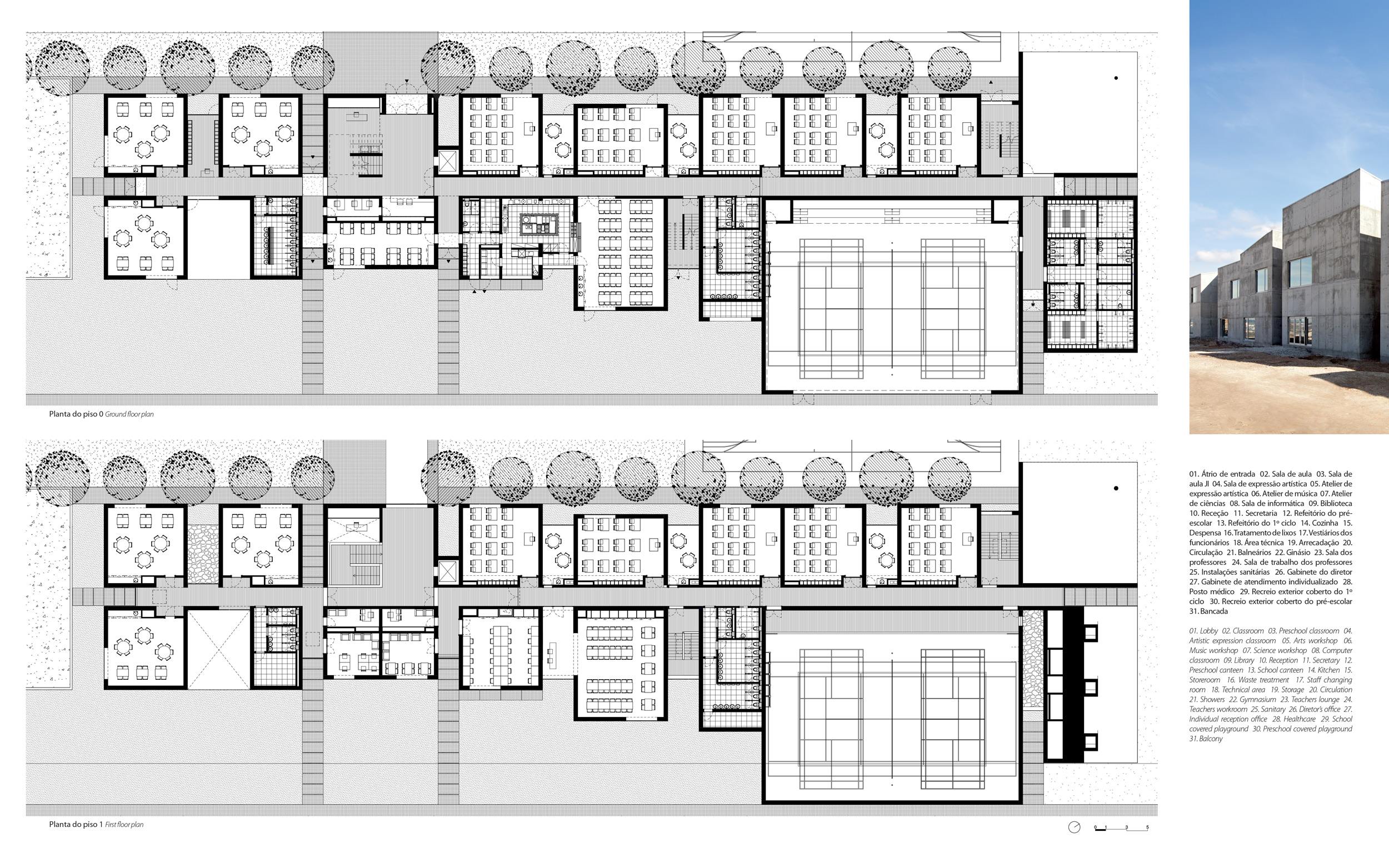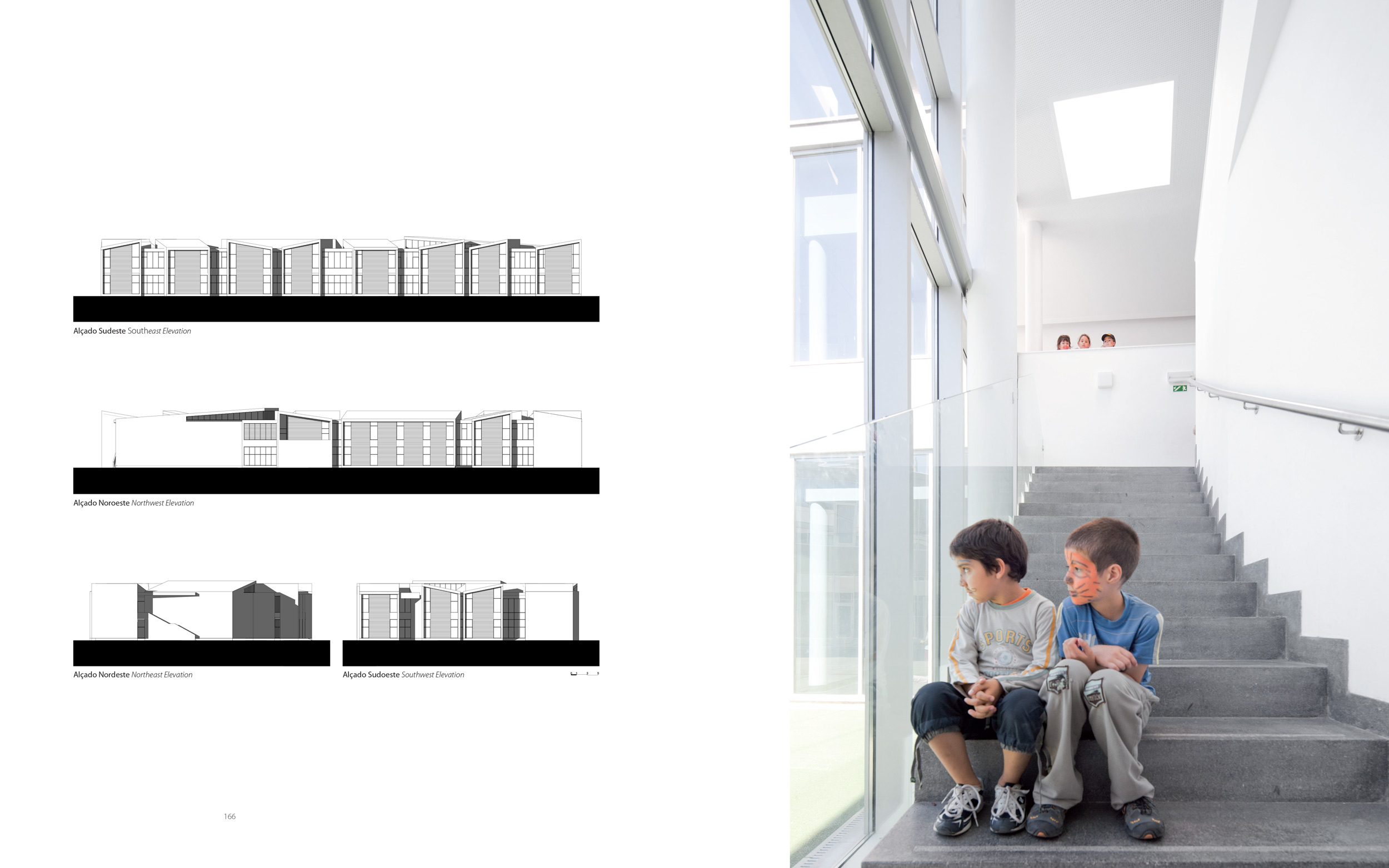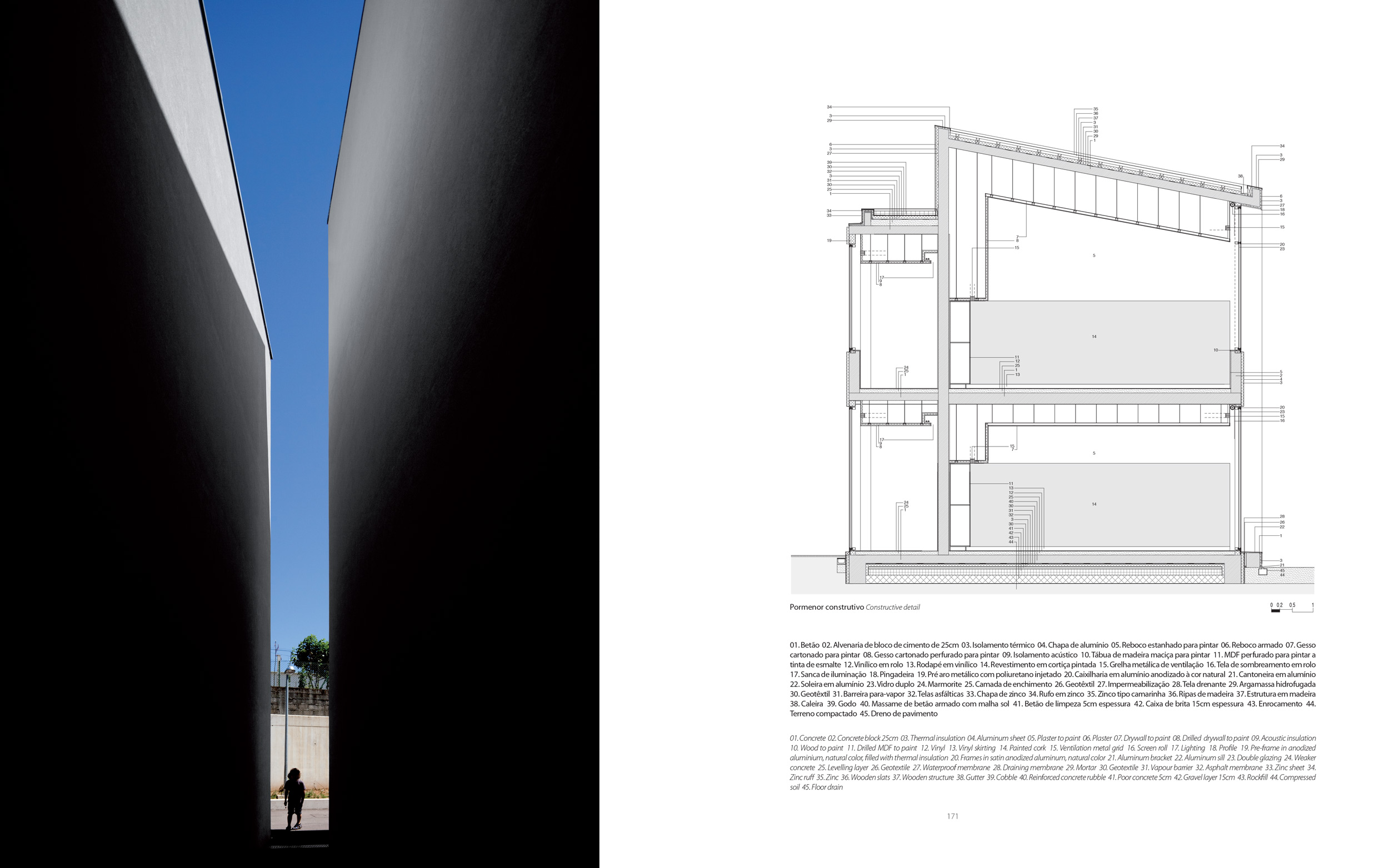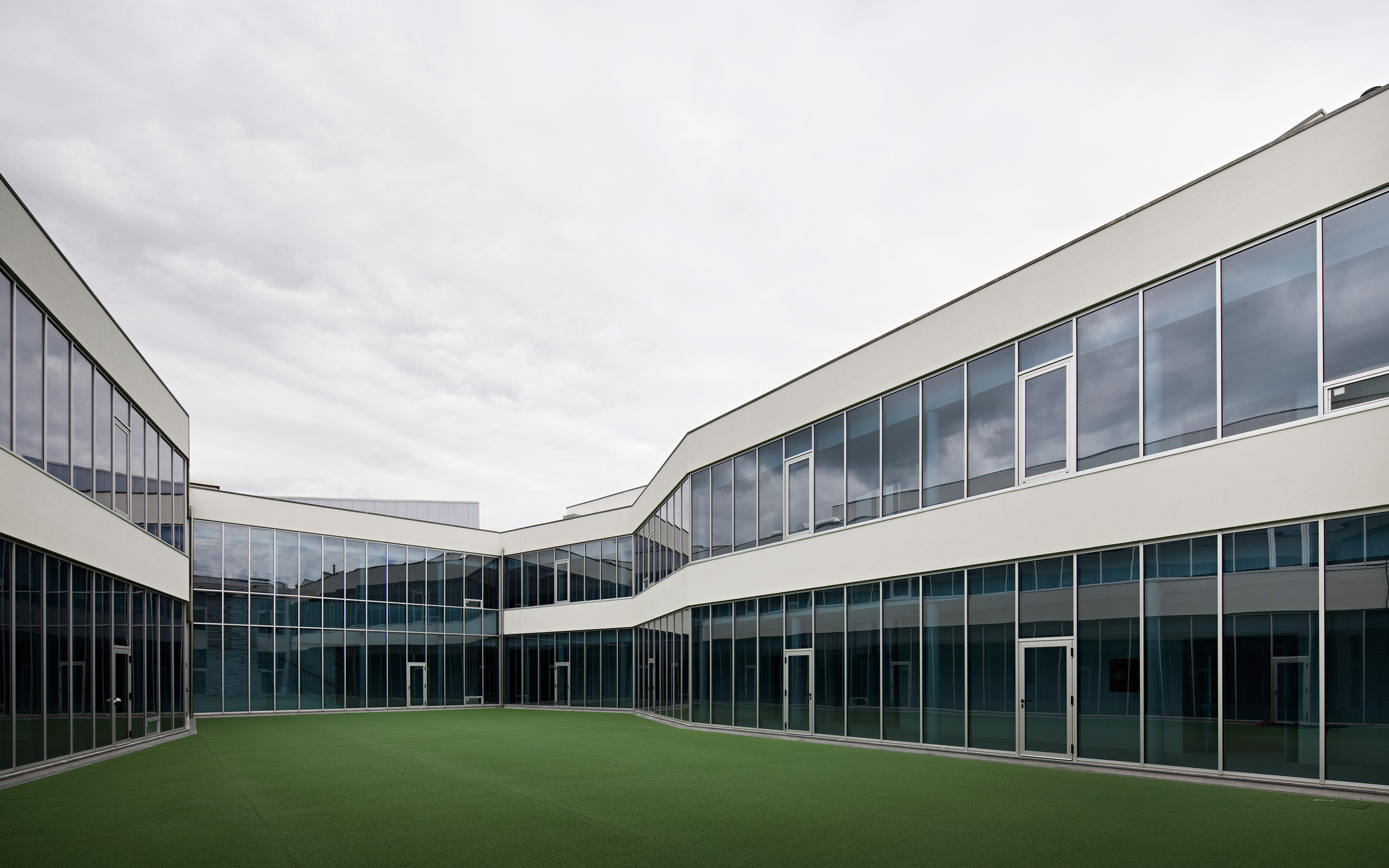ISBN
9789899748071
Edição
Transnética
Ano
2012
Número de páginas
292
Dimensão
25x30cm
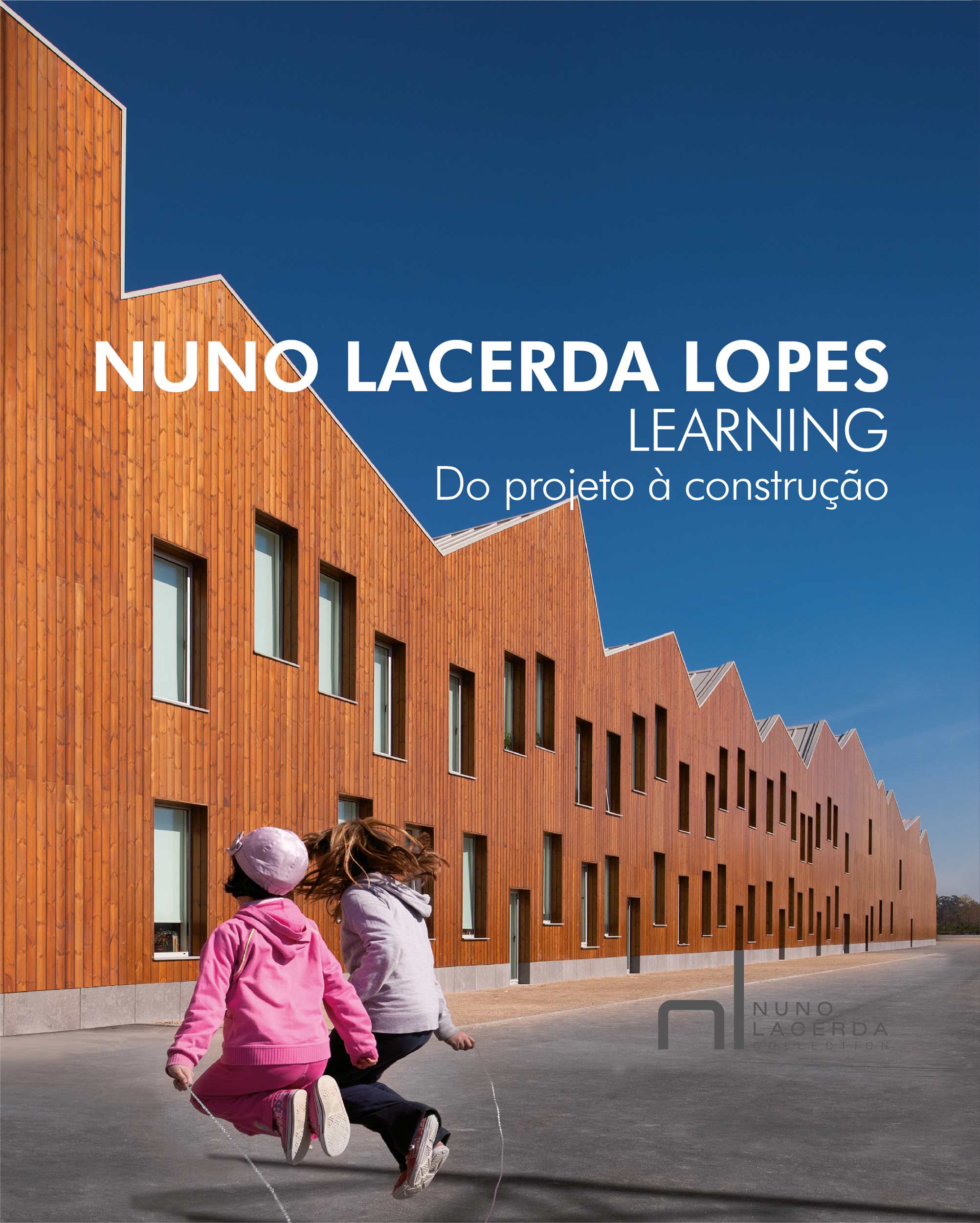
ISBN
9789899748071
Edição
Transnética
Ano
2012
Número de páginas
292
Dimensão
25x30cm
More than a set of projects or constructed works, this book seeks to describe a whole vision about a way of thinking, designing and building an ideal school or learning space, which over almost two decades we have been developing in various projects of different scales and, above all, with different programs and requirements.
The selection criteria stems from a narrative more linked to the understanding in which at a given moment we made the school space than the formal, plastic sense itself, or if we want to be typological and stylistic of the works presented.
Excerpt
“THE SCHOOL AS HOME
SOME NOTIONS ABOUT A CERTAIN IDEA OF HOUSING
(…) To inhabit is a global phenomenon and thus something exterior or “urbanized”, so its study implies a succession of interactions of the universal, public, private and intimate domain that to inhabit it promotes as a mixture of shared actions with the other inhabitants, in a sense of contamination and far from an idyllic metaphysical and theoretical habitation of the Being in the world that the mythical hut of Adam symbolizes in this lost but successively reconstructed paradise.
For this reason, we can accept the idea that we live, today, in the workplace, on the public highway, in schools, in churches and football stadiums, in car parks and in the endless “rows” of motorways, in theme parks and hotels, on the Internet and in the virtual house, in cinema and television, and therefore the thematic focus of this problem is shifted to the problems of everyday life, of relationality and novelty as a factor for understanding or “building” the concept of dwelling, in the presence of man and without his “habitation”, that is, without the modern archetypes of a dwelling for all built on the basis of a system or technical-financial logic of construction entrepreneurs in the metropolis that reproduce an ideal of dwelling for an ideal of a nuclear family, ever more distant. (…)”
